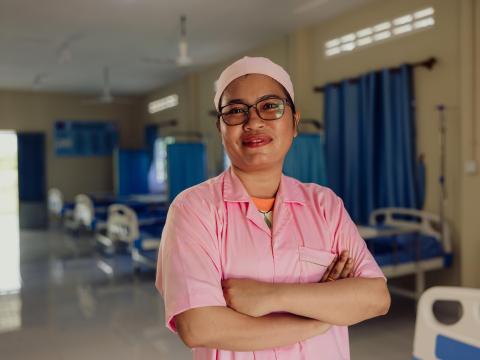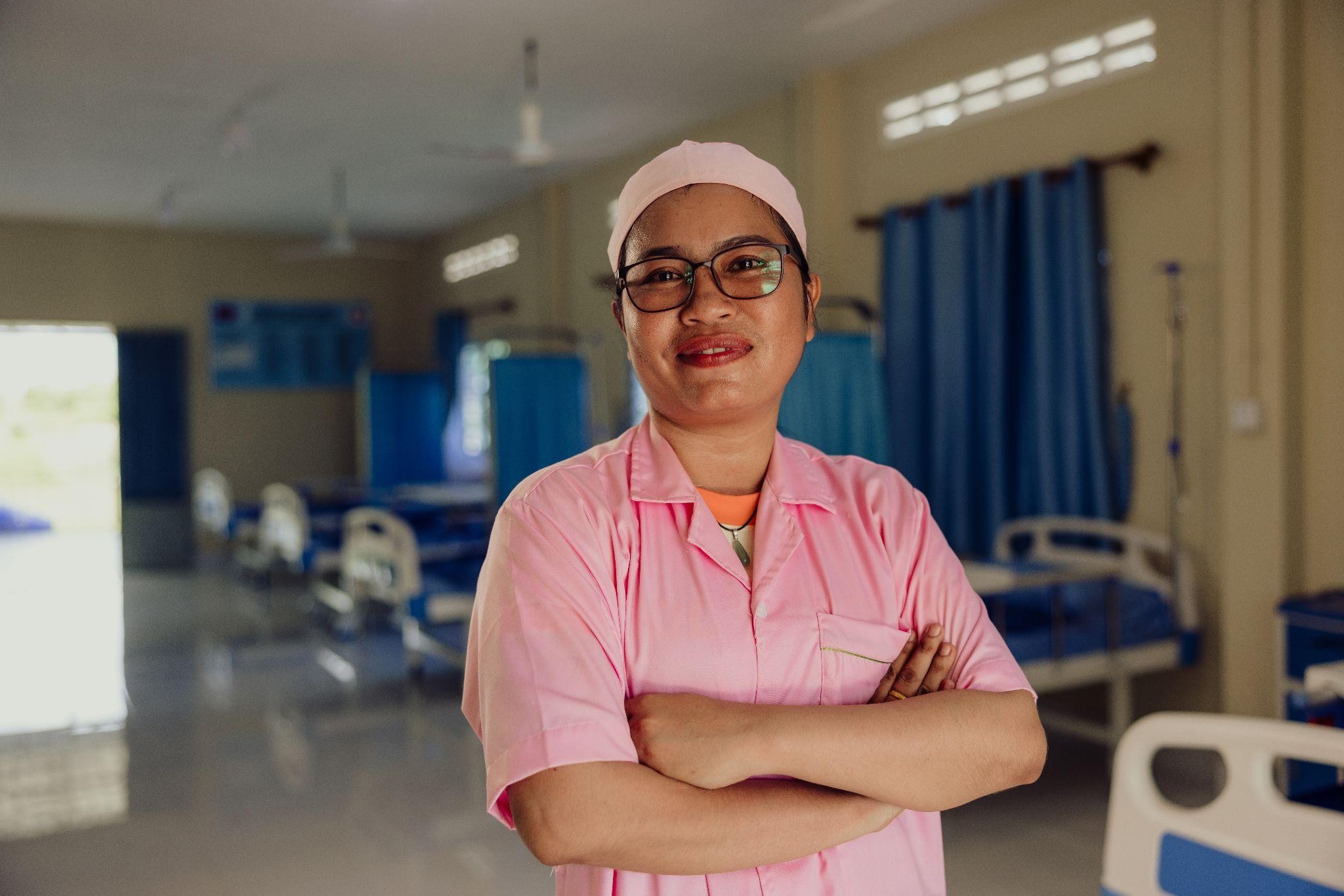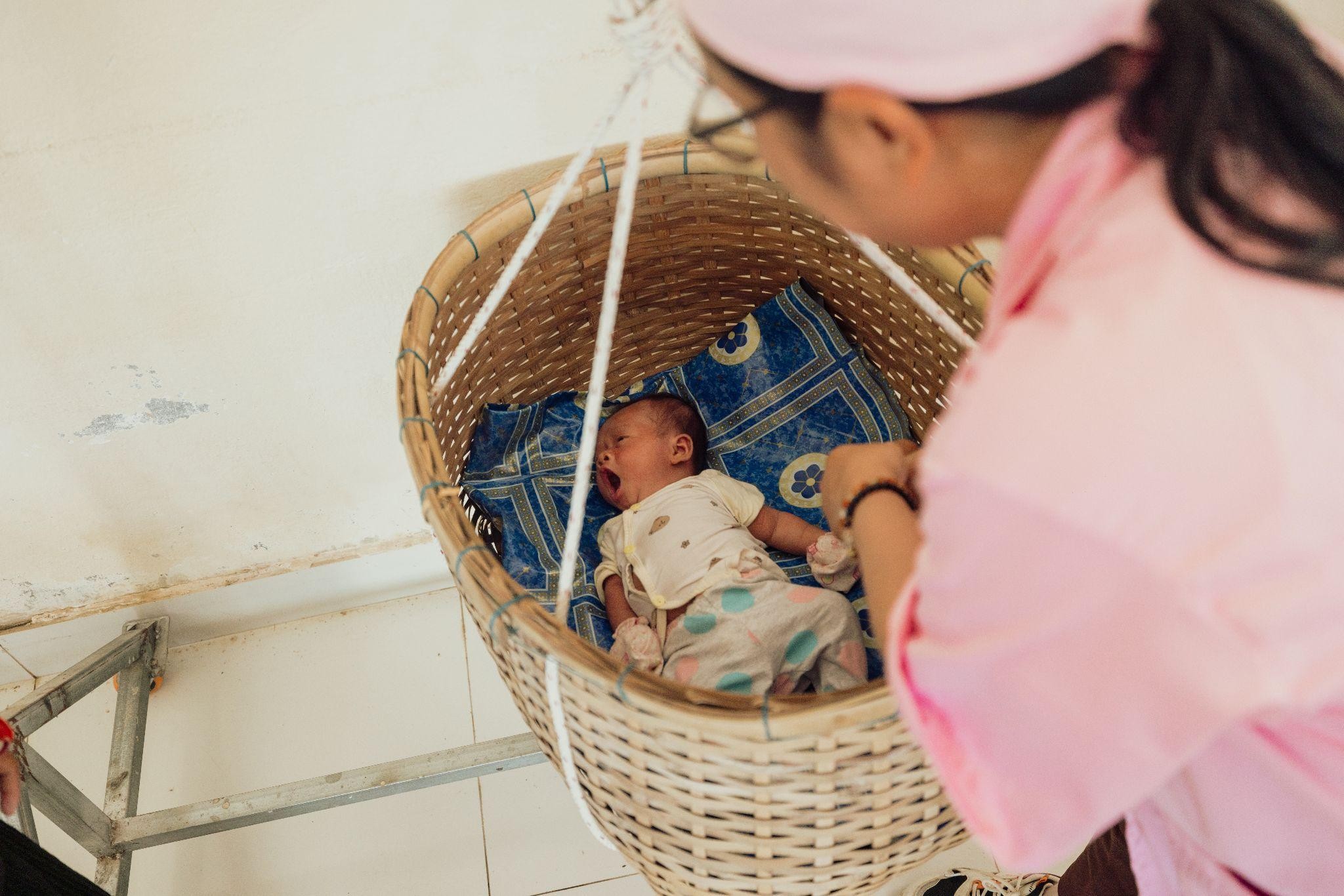From Sponsored Child to Midwife: Vannak shows what’s possible for sponsored girls


When Vannak walks through the Svay Rumpear Health Centre in her village, she does so with a deep sense of pride in how far both she and her community have come. As a leading midwife, she greets patients with warmth, guiding new mothers as they welcome their babies into the world. It’s the type of medical support that didn’t exist 20 years ago, and just one of the many interventions this community has seen thanks to sponsorship.
“I’m not rich,” Vannak says with a smile, “but I can live comfortably. I can also send my children to school.”
For Vannak, this is the future her mother dreamed of for her—a future that seemed impossible when Vannak was a young girl. “My house was in a remote part, and the road would often flood up to my knees,” she recalls. Her family struggled to survive, with food often being out of reach. Despite this, Vannak’s mother, a farmer, always believed in the power of education.
This was not a common belief in Kampong Leaeng. In many rural communities, societal norms dictated that girls should stay at home, assist with household chores, and marry at a young age. In the past, education for girls was often seen as unnecessary, and opportunities for women to pursue careers or higher education were rare. But Vannak’s mother saw things differently. Despite lacking the money for school lunches, she insisted that Vannak go to school.
At the same time, World Vision was conducting a needs assessment in the region and identified Kampong Leaeng as one of the most vulnerable areas. In 2003, while Vannak was in middle school, she was given the opportunity to be sponsored—a moment that would quietly change the course of her life.
At first, it was the basics: schoolbooks, pens, and supplies she desperately needed. “These were essential,” she says. “I didn’t want to ask my mother because we were struggling at the time.”
But what truly changed her trajectory was the steady encouragement from her sponsor. “I wanted to be a midwife back then,” she remembers. “But I couldn’t consider whether I was capable of it due to my family’s situation.”
Through letters filled with support and belief in her potential, her sponsor helped plant the idea that, just maybe, her dream was possible. “My sponsor always asked how I was doing and encouraged me to keep going,” she says. That encouragement, combined with the foundational belief that education was her ticket out of poverty, gave Vannak the motivation to study hard.
As Vannak grew, so did her community. With the support of sponsors, a range of essential services was introduced — from clean water systems and sanitation facilities to health training and safe delivery support; however, the most significant changes extended beyond infrastructure and equipment. Through sustained engagement with children, families, and local leaders, mindsets began to shift. Parents began to value education as a means of escaping poverty. More girls stayed in school. Families are increasingly turning to clinics for maternal and child health care. What began as one-off interventions grew into long-term, community-led transformation. The local health centre is now staffed with trained professionals. The reading clubs established during the programme continue to operate today, opening doors to learning for many children.
Back then, [women] would deliver their children at home,” explains Vannak. “That is no longer the case, as they now have a better understanding.”
Vannak’s journey wasn’t easy. With limited funds for university, she worked tirelessly, sacrificing basic comforts to fund her studies. But the encouragement from her sponsor was her cornerstone, as she pushed forward even when things seemed impossible. Her determination paid off when she earned a nursing qualification and became a midwife, driven by a desire to invest her skills in her own community.
Today, Kampong Leaeng is a very different place from what it was twenty years ago. While World Vision has successfully moved on, people like Vannak have stayed, and they are leading the community’s continued transformation. This is precisely what success looks like. World Vision’s transformation model is built on community-led development, with a transition plan in place to conclude approximately 15 years after its inception. It’s an approach that empowers the next generation to build a strong, independent future—one that’s not reliant on aid.

Vannak not only serves as a midwife but also contributes to the ongoing community development in Kampong Leaeng. She is part of a growing network of former sponsored children who have gone on to become teachers, healthcare providers, and community leaders. They are breaking barriers and building brighter futures by sharing their skills and knowledge with the next generation.
“My dream is to ensure that my children complete their studies and secure good jobs, just like I did, so that they can provide for themselves,” Vannak says, referring to her own children, who are growing up in a world of new opportunities.
In a society where inequality still limits the opportunities available to girls, Vannak’s story is a powerful reminder of what’s possible when girls are given a chance to succeed. With the support of sponsors, girls like Vannak can break through the barriers that hold them back—accessing education, achieving career goals, and contributing to their communities in ways that were once thought impossible.
“I would like to thank all the sponsors for their generosity and support in helping children and communities,” Vannak says. “Their help was real.”